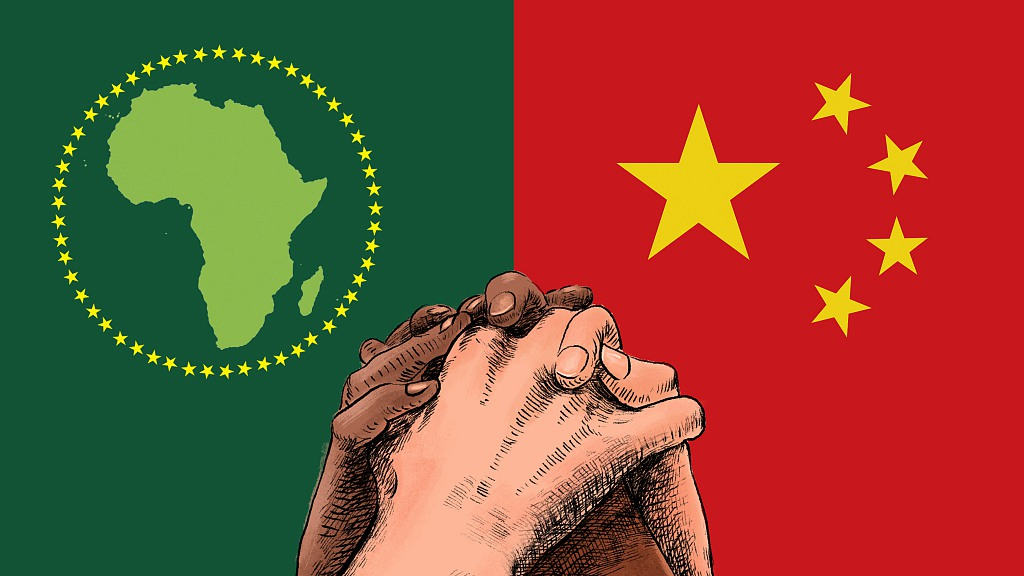
CHINA’S presence in the global south, particularly on the African continent, has not been without controversy. Some have embraced the emerging superpower’s penetration into the continent, seeing it as a solution to their economic woes while others are sceptical about its presence.
Faith Kamupita
The academia has contributed extensive literature on the subject with a number of scholars arguing that the presence of China in Africa is draining the continent and contributing to its economic decline.
In its quest to attain global hegemony, China has embarked on the Belt and Road Initiative, a multibillion-dollar project that seeks to link China with various strategic partners across the world.
Beijing is determined to excel and one continent that can help the country attain its global economic and political powerhouse status is Africa.
The recently published China’s 14th five-year plan seeks to improve the country’s economic system and that partly explains the Asian giant’s obsession with Africa, a continent endowed with rich mineral reserves that the Chinese can use to their economic benefit.
Since African countries have failed to put these resources to good use countries like China are always available to use these resources to its advantage.
China has tabled attractive and irresistible offers to desperate African governments, making it impossible for the latter to deny it access to mineral reserves. For example, the several mining companies in Chiadzwa are Chinese-owned and the larger profits from those mining ventures have been siphoned to develop China, leaving Zimbabwe with a dent in its economy.
- Chamisa under fire over US$120K donation
- Mavhunga puts DeMbare into Chibuku quarterfinals
- Pension funds bet on Cabora Bassa oilfields
- Councils defy govt fire tender directive
Keep Reading
It has often been stated that Africa is now headed towards economic neo-colonialism and China has contributed greatly in maintaining this state of affairs due to its interest and influence on African governments.
When the Chinese offer aid to African countries, are they doing this from the goodness of their hearts or there are ulterior motives?
Look at how they have offered loans to African countries, loans that are no different from the ones offered by the World Bank. For instance, Zambia almost lost an airport due to its failure to pay back a loan it had received from China.
Is it really China’s job to bring development to Africa?
Can African powers be bought in exchange for help for their economies?
Is the means to an end game being played by China fair (offering free scholarships to students in exchange for mining rights)?
The African continent is endowed with various minerals and the sad case is the resource curse that exists among African countries.
However, China has not been blind to this fact.
For China’s expansionist policy to be effective, it has allocated more weight to the culture and ideology sectors in its current five-year plan.
Lately, China continues to embark on numerous programmes that ensure that it extends its culture and ideology mostly to African countries as evidenced by the scholarships to learn in China and setting up the Confucius institute in most tertiary institutions and the fact that students have to spend an entire year learning Chinese languages and culture when in China etc.
All of these are means to an end, ways in which the Chinese can extend their influence and Africa has become the easy target. China, as the facilitator of neo-colonialism in most African countries, has created a platform that enables most African countries to depend on it for aid.
Zimbabwe’s “Look East policy” is an example of this.
African countries have always felt a sense of indebtedness towards their former colonial masters, a sense of dependency towards the West particularly, and when relations with the West began to take a turn in a negative direction, China quickly takes advantage of this as it also has its policies to pursue and achieve.
Because Africa yearns for validity from some superpower, it is in a dilemma but since China has brought all of these “attractive” ideas of development for the African continent, it is made to believe that China is a better devil than the West.
So, this indebtedness to powerful States continues to push Africa into dependency on China and because the Asian country understands the benefits that come with having Africa at its mercy, it remains available to offer aid in various forms.
China’s current 14-five-year plan has provisions for it to expand its influence and eventually become a superpower.
So, if one is to look at the relationship that exists between China and Africa from a closer perspective, one should be able to note that the two are friends but mostly when there are benefits involved.
The friendship is built on mutual needs from both ends.











